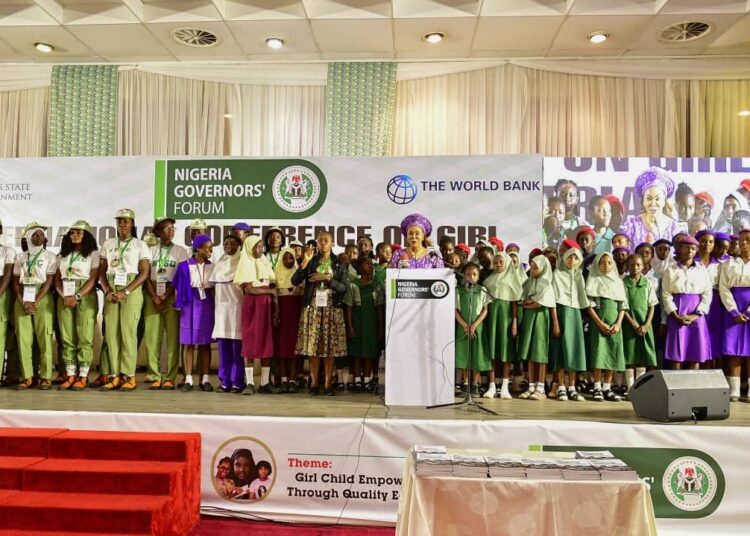The Nigeria Governors’ Forum (NGF) has pledged to allocate at least 15% of their annual budgets to the education sector, with a particular emphasis on girl-child education.
Chairman of the NGF and Kwara State governor, AbdulRahman AbdulRazaq, disclosed this in his closing remarks at a two-day International Conference on Girl Child Education in Nigeria, held at the Presidential Villa, Abuja.
The NGF chairman, who was represented by the Director-General (DG) of the Forum, Abdulateef Shittu, declared, “Our commitment as a forum to education financing, especially girl child education funding, is unwavering across the states.
“We declare our readiness to meet the international benchmark of at least 15% annual budgetary allocation to the education sector.”
The conference, which brought together stakeholders from various sectors, focused on addressing challenges in the education system through the Education Community of Practice (ECP) framework. Presentations covered topics ranging from data-driven quality education to the roles of subnational governments in Nigeria’s education landscape.
A significant highlight of the event was the unveiling of Girl Education Ambassadors, a move described by the NGF chairman as “pivotal in our collective drive to address issues of access to education and the learning poverty of our children.”
“This initiative aims to engage over 774,000 Girl Child Education Volunteers’ Advocates (GICEVA) across all local government areas in Nigeria annually.
“Through their collective efforts and in partnership with the Gender Desk Officers of the National Youth Service Corps (NYSC), NGF will engage over 774,000 Girl Child Education Volunteers’ Advocates across the 774 Local Government Areas annually for access and quality education advocacy projects,” the chairman explained.
The Governors’ Forum also announced a partnership with the Federal Ministry of Youth through the NYSC to establish a Girl Child Education Community Service Group.
This group will be integral to addressing the out-of-school children challenge, focusing on primary school enrollment, foundational literacy and numeracy, and teacher capacity training.
As part of their commitment to transparency, the Forum presented an Education Expenditure and Institutional Review report covering 2021-2023 for the states.
The NGF Chairman emphasised, “We are committed to having a vision for the Education Community of Practice intervention framework for enrollment advocacy, funding support, and quality education scale-up.”
Meanwhile, the Federal Government will begin removing out-of-school children from the streets starting October 15, 2024, according to the Minister of Women Affairs, Uju Kennedy.
The initiative, aimed at addressing the growing number of children without access to education, is set to make a significant impact.
Kennedy highlighted the significance of this step, stating, “Picking those children from the streets will enable the government to have access to their parents, especially their mothers.”
The program will not only focus on the children but will also extend support to their families, particularly empowering mothers to provide for their children.
“The Federal Government has a plan to empower out-of-school children’s mothers so they can cater to their children,” Kennedy explained.
She called on all relevant stakeholders and Nigerians to join efforts in empowering underprivileged women across the nation.





